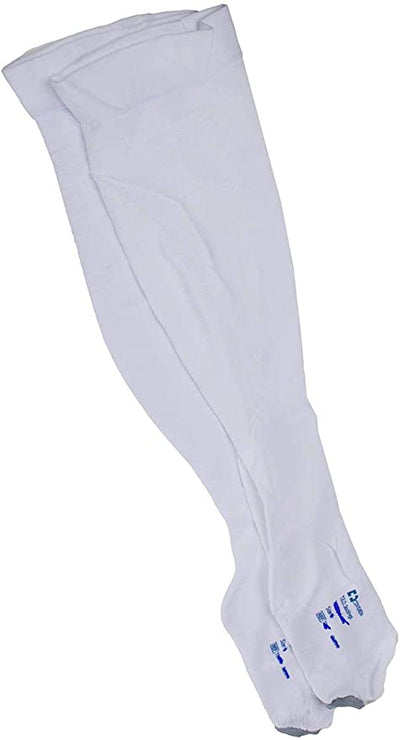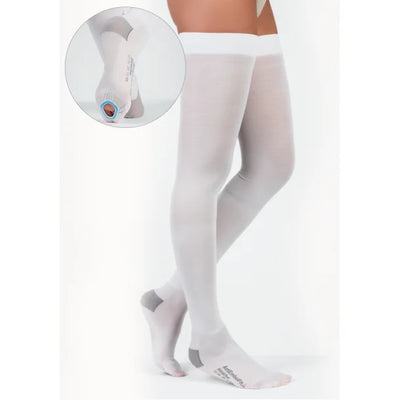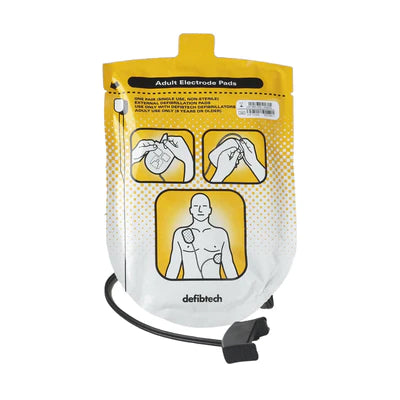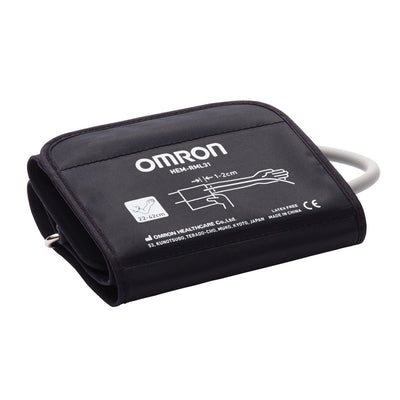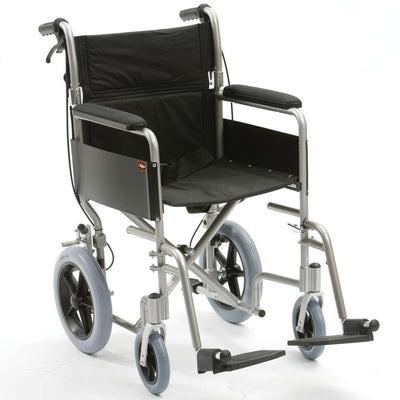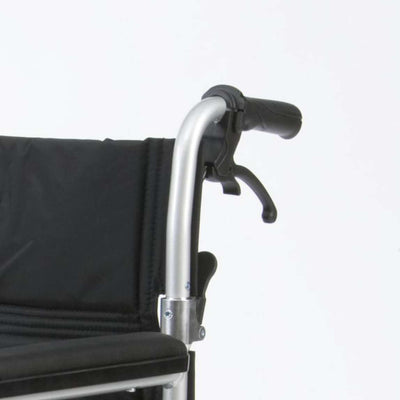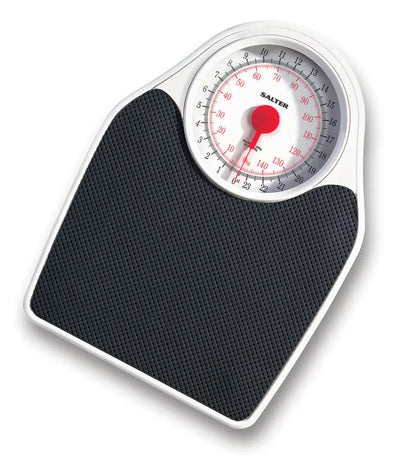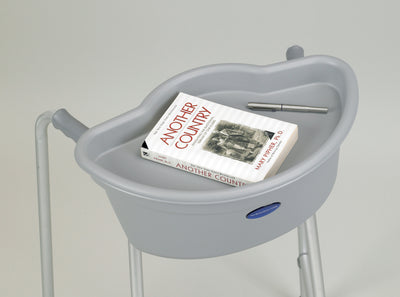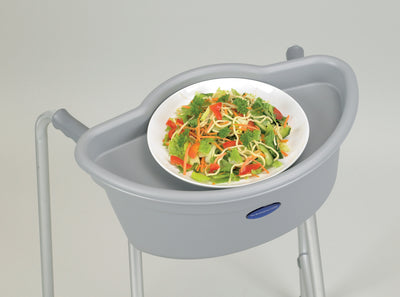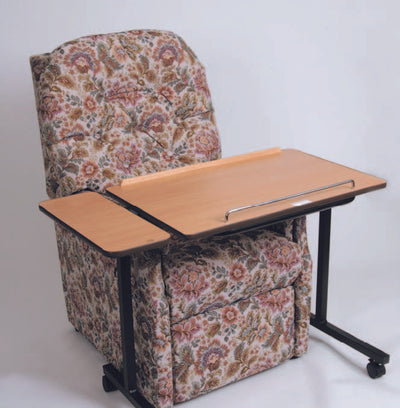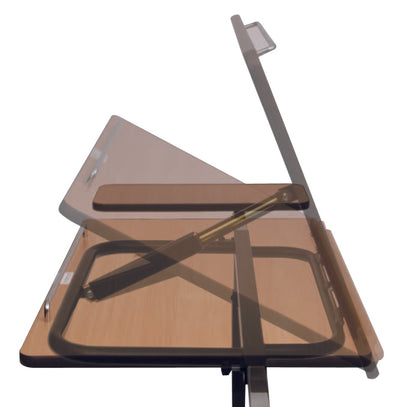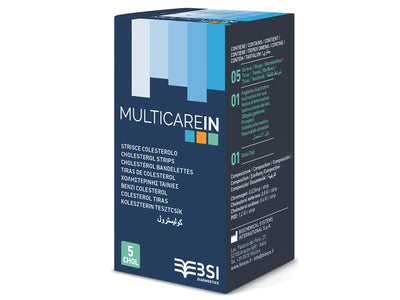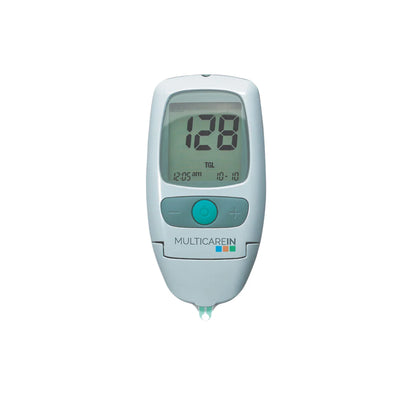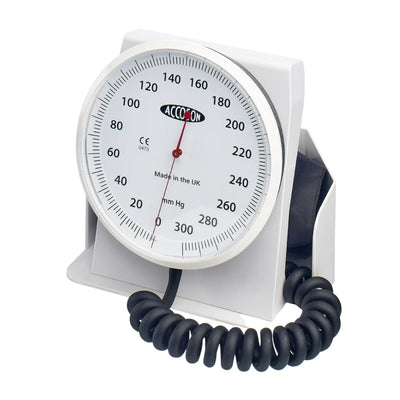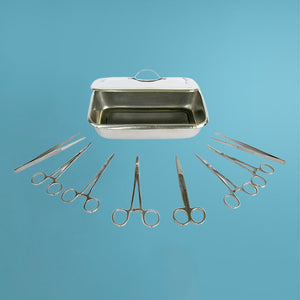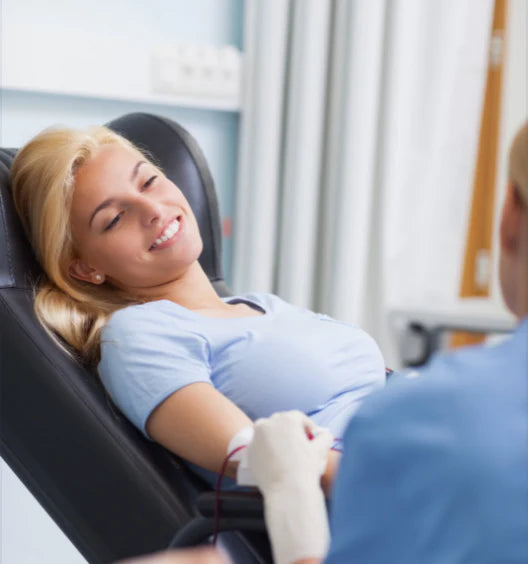Have you ever given blood? No? There are lots of reasons why you might never have gotten round to donating to your local blood bank but, here in the UK, the NHS is heavily reliant on our voluntary blood donations to continue saving lives and offering on-going treatment to those who need it.
Read on for our first timers’ guide to giving blood and follow the link at the end to book your first appointment in today. Giving blood is incredibly quick and easy to do and you’ll be rewarded with the knowledge that you’ve helped someone in need, and got yourself a tasty cuppa and a biscuit into the bargain!
Why Should I Give Blood?
The bottom line is that giving blood saves lives. Donating blood is the equivalent of giving a life-saving gift to a stranger - and it’s difficult to imagine a more worthwhile thing to do.
Blood (or the components of blood) is used to treat patients with medical conditions such as anaemia, blood cancer disorders, and those having surgery. Blood transfusions are routinely needed for patients with:
- Sickle Cell Anaemia
- Thalassaemia
- Cancer treatment
- End of Life treatment for conditions with no cure
- Emergency C-Sections during childbirth
- Amputations and other emergency operations
How much Blood is needed in the UK?
The NHS in England alone uses over 1.6 million pints of blood every year to patients with a variety of health and emergency conditions. In short that means they need:
- Nearly 400 new donors a day to meet demand
- Around 135,000 new donors a year to replace those who can no longer donate
- 40,000 more black donors to meet growing demand for better-matched blood
- 30,000 new donors with priority blood types such as O negative every year
- More young people to start giving blood to ensure sufficient stocks in the future
Who Can Give Blood?
Almost everyone is eligible to give blood, although there may be times when illness or circumstances will rule you out of donating for a short period of time. You cannot give blood if you are:
- Suffering from a cold or similar infection
- Pregnant
- If you have had a blood transfusion during childbirth or elsewhere
- If you are receiving certain medical treatment or taking certain prescription medicines
- Have recently had a tattoo or piercing
- A man who has had oral or anal sex in the previous 3 months
- Suffering from Covid or are experiencing symptoms
- Taking antibiotics for an infection You must wait until you are completely healed or for 14 days after taking your last tablet.
- Recovering from some dental treatments e.g, root canal, extraction etc
You CAN give blood 7 days after receiving your vaccination for the Coronavirus.
It is always best to check your current eligibility with the Blood Donation website before making an appointment.
What Happens When I Donate Blood?
Giving blood is incredibly quick and easy - and can take as little as 5-10 minutes to make your donation. On the day of your appointment you will be registered and asked to fill in some basic health forms.
You’ll be encouraged to drink some water to help with your wellbeing during and after the donation.
You will be given a quick health screening which involves a tiny finger prick blood test to check that you have enough haemoglobin (iron) in your blood and you will be asked to answer a few questions regarding your current health etc.
If you’re good to go, you’ll be taken to a very comfortable donation chair where a blood pressure cuff will be fitted on your arm - this is not to measure your blood pressure, however, but to apply a slight pressure to the arm to allow for a quick flow of blood. The chair might be reclined slightly to raise your feet and the nurse will identify a suitable vein and wipe the area with antibacterial liquid.
Following the quick and painless needle insertion, you will be left to relax while your body gets on with the blood donation process. You will likely be given a small stress ball to hold and squeeze during the donation to increase the flow of blood.
The donation should only take 5-10 minutes and will stop automatically when the level has reached 470ml, at which point the nurse will remove the needle and apply a small, sterile dressing to the arm.
Time for a Biscuit!
You will be encouraged to stay in the waiting area for around 15 minutes (or more) after your donation to make sure you’re feeling fine and ready to get on with your day. On your first donation you might only be allowed to drink cold water (hot drinks are on offer for your future donations) but there is always a great selection of chocolate biscuits, crisps, fruit and snacks for you to enjoy.
You will be able to leave after this short rest and should be more than fine to carry on with whatever your day entails - although it’s best not to have a hot bath or a sauna for 24 hours after your donation.
Fancy registering to Give Blood today? Follow this link and become one of the UK’s most important lifesavers.
Need more help to improve the disabled access to your business? We're always here to help so get in touch today.
For all your Medical and Homecare supplies give us a call at Mediworld.
We have over 40 years experience in medical, surgical, mobility and home health supplies and we're always on hand to chat if you need support or advice. Follow us on Twitter and Facebook and don't forget to read our other great health blogs!
